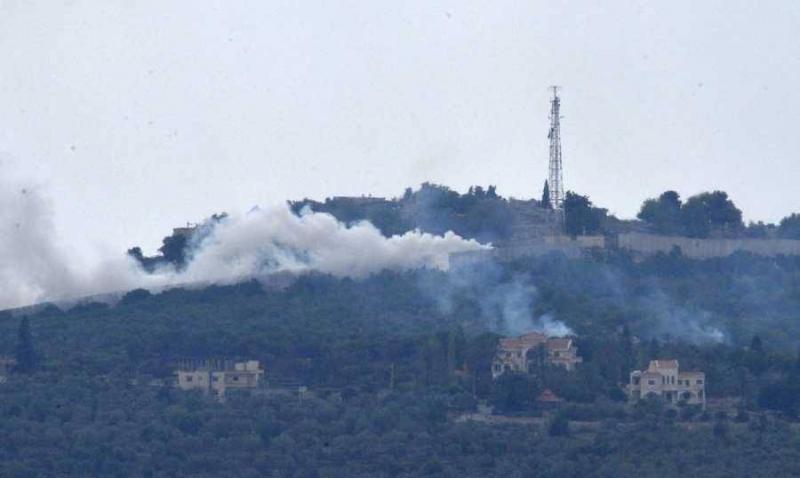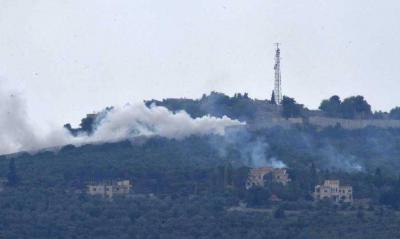The proposed French initiative aimed at ending the military confrontation between Hezbollah and the Israeli occupation army has been complicated and surrounded by suspicions, which have hindered its progress and placed Paris in the dock as some question the sincerity of its intentions and objectives. Consequently, a prevailing impression among most Lebanese entities familiar with the French proposal is that it is biased in favor of Tel Aviv, with Hezbollah regarding it as a completely Israeli document. This perception has negatively impacted the credibility and integrity of the French role.
Moreover, there are those inside Lebanon who criticize Paris for engaging in a campaign of pressure and intimidation against Lebanon, claiming that its envoys have shifted from being supposed mediators to mere couriers transmitting Israeli threats of a wide-scale war to the Lebanese government and Hezbollah, aimed at pushing them to make sovereignty concessions regarding the future situation in the south.
But where do the French stand regarding these accusations, and what is their narrative about the ceasefire initiative they are promoting? Diplomatic sources close to the French government tell "Al-Jumhuriah" that the French paper aimed at reducing tensions on the southern border is not Israeli. Instead, it is considered to be quite balanced and takes into account Lebanon's interests and stability.
The sources emphasize that the proposal is open for discussion and is not final, clarifying that Paris has yet to receive any official and definite responses from either the Lebanese government or the Israeli entity. They stress that Paris is performing the role of a neutral mediator between Lebanon and Israel, stating that it is not true that they are already biased towards the Israeli government, which has not yet responded to their proposals, possibly because it disapproves of the aspects related to requiring it to respect Lebanese sovereignty and to cease all violations thereof.
The French diplomatic sources deny any intentional intimidation of Lebanese officials regarding the possibility of Israel launching a wide-scale war, asserting that they are acting realistically and responsibly based on the understanding that it cannot be guaranteed that tensions will remain at the current level. They argue that if nothing is done in the meantime, the risk level would increase, questioning why not seek to open a diplomatic window in this wall to avoid the worst-case scenario. This is the matter for them.
Additionally, the sources indicate that the proposal is fundamentally a French attempt to create a diplomatic-negotiation pathway at the present time, in order to prevent any deterioration towards a large-scale war between Lebanon and Israel. In contrast, they note that the American strategy is mainly based on allowing matters to take their course and letting tensions escalate to the maximum before waiting until the war in Gaza ends to resume intervention and discuss the arrangement of the situation along the southern border.
The French sources consider that the absence of Amos Hochstein's visit to Beirut after his recent trip to Israel is a clear indicator that the Americans are not in a hurry to settle the border dispute currently. They point out that the French proposal includes stopping Israeli aerial violations of Lebanese sovereignty and establishing a monitoring committee to ensure the implementation of any agreement reached similar to the committee formed in 1996 to oversee the application of the April Understanding, deploying the Lebanese army after its reinforcement along the border, addressing disputes regarding the contested geographic points, and withdrawing armed groups 10 kilometers in line with the provisions of Resolution 1701. The essence of this provision is to ensure a balanced situation on both sides of the border, with the Lebanese army on one side facing the Israeli army on the other, focusing not on withdrawing local villagers but on organized groups.
The French sources stress the importance of the army's role in protecting stability and sovereignty, hence the proposal emphasizes the need to enhance its capabilities to enable it to perform its required tasks. They add that they present a genuine opportunity to the Lebanese to ensure stability in the south, advising them to take advantage of it, as they are truly concerned about their interests, given the special and historical relations connecting France with their country. Meanwhile, they state that the Americans prioritize the requirements of Israel fundamentally.
Ultimately, the Lebanese are free to decide what they want: either to respond positively to the French initiative and engage immediately in the negotiation process where all demands and concerns can be discussed, or to wait for Washington, which does not want to intervene seriously until the war in Gaza concludes, a wait which carries risks for Lebanon, as circumstances could suddenly spiral into a large-scale confrontation despite the impression that both conflicting parties are seeking to avoid it.
The sources continue that the worst-case scenario might be if Donald Trump wins the next American presidential election and returns to power, raising uncertainty about Lebanon's ability to rely on a president who, during his first term, moved the American embassy from Tel Aviv to Jerusalem and endorsed Israel's decision to annex the Golan Heights. Thus, it remains unclear how the fate of the Shebaa Farms would be handled in this context.
The sources confirm that France is trying to pressure Tel Aviv to push towards achieving a ceasefire in Gaza, acknowledging that a respite there would facilitate their efforts for a ceasefire here. However, this does not mean simply watching the escalation between Lebanon and Israel until the end of the war in Gaza. The French sources reveal that the Israelis have informed them that they refuse to return to the status prior to October 7 at the border with Lebanon, intensifying their strikes in terms of both target areas and targeted individuals.
The sources hope that the available French opportunity for addressing the military conflict between Hezbollah and the Israelis will be seized before it escalates further.




